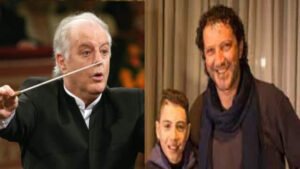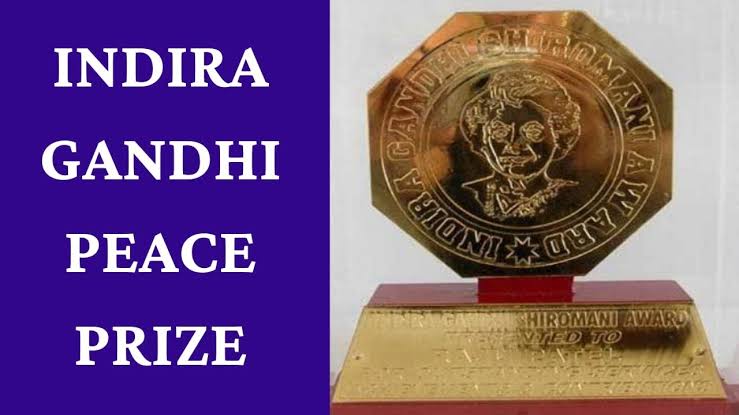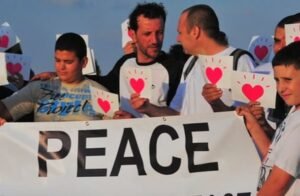On December 14, eminent pianist Daniel Barenboim and peace activist Abu Ali Awwad were awarded the Indira Gandhi Award (2023) for their tireless efforts towards a non-violent resolution of the Israel-Palestine conflict.
More than 17,000 people have lost their lives in the Israel-Hama conflict so far. So everyone around the world wants to see an end to the blood- sucking war. The seeds of the peace movement can be developed through the collective role of the youth.
“these two were awarded for their outstanding efforts in bringing together the youth and peoples of Israel and the Arab World for a non-violent resolution of the Israel-Palestine conflict by fostering meaningful political and humanitarian dialogue, and peaceful public cooperation”, the Indira Gandhi Memorial Trust said in a statement.

They were selected by an international jury led by former Chief Justice of India,TS Tagore.
Barenboim and Awwad have played a major role in resolving political and humanitarian conflicts and establishing peaceful public cooperation through music and peace dialogue.
Indira Gandhi prize
The Indira Gandhi Award is a quality award established by the Indira Gandhi Memorial Trust in 1986. The award honors people, teams, or organisations that have created undeniable contributions to the promotion of international peace, disarmament, and development each year.
The Indira Gandhi Award is named after the late Indian Prime Minister Indira Gandhi. The award is offered in three key domains. It was initiated to recognize the outstanding efforts of recipients in any one or all three categories of peace, disarmament, and development.
Barenboim: Distributor of the Tune of Peace
the Tune of Peace
Born in Argentina, Barenboim is a renowned classical pianist and conductor. Barenboim lives his life by performing and conducting music with some of the world’s leading orchestras.
In addition to his magical musical achievements, Barenboim promoted a message of peace by using peaceful music to promote harmony in West Asia.
His friendship and partnership with Palestinian scholar Edward Said shaped his vision of a peaceful solution to the Israeli-Palestinian conflict.
Barenboim worked closely with Said to bring together youth from Israel, Palestine, and other Arab and North African countries.
Based on this, Barenboim, along with Said, founded the West-East Diwan Orchestra and the Barenboim-Said Academy.

Barenboim has been awarded numerous awards such as Germany’s Grand Cross of Merit, Spain’s Prince of Asturias Award, and France’s Commander of the Legion of Honor, for his unstoppable efforts in intercultural education and community integration.
Former Chief Justice of India T.S. Tagore praised Barenboim for his significant role in bridging social and cultural gaps through the universal language of music.
He said, “Barenboim’s commitment and call for public participation as a catalyst for peace have not only enriched the world of classical music but transcended borders, uniting the community for a common goal—a peaceful solution to the complex Israeli-Palestinian conflict.”
Awwad: A Defender of Anti-war Thinking
Born in 1972, Abu Ali Awwad grew up in a family of political refugees. He is a prominent Palestinian peace activist. He worked with the people of Palestine and Israel for a peaceful solution to the ongoing conflict in West Asia. Awwad is committed to building peace by arming the principles of non-violent action, freedom, and dignity for peace efforts.
In 2014, Awwad co-founded Roots, a Palestinian-Israeli initiative to promote understanding, nonviolence, and change. From here, he started speaking out against all non-violent activities.

Awwad’s peace efforts led to a Palestinian non-violent movement called Taghyeer. Taghyeer is an independent people’s movement dedicated to social development. This movement made immense efforts to create a non-violent solution to the conflict with Israel.
According to the view of Ali Awwad, “Nonviolence is the art of practicing your humanity; it is the art of being human.
He called the path of peace “a place to live with respect for each other’s rights”.











Comments 1